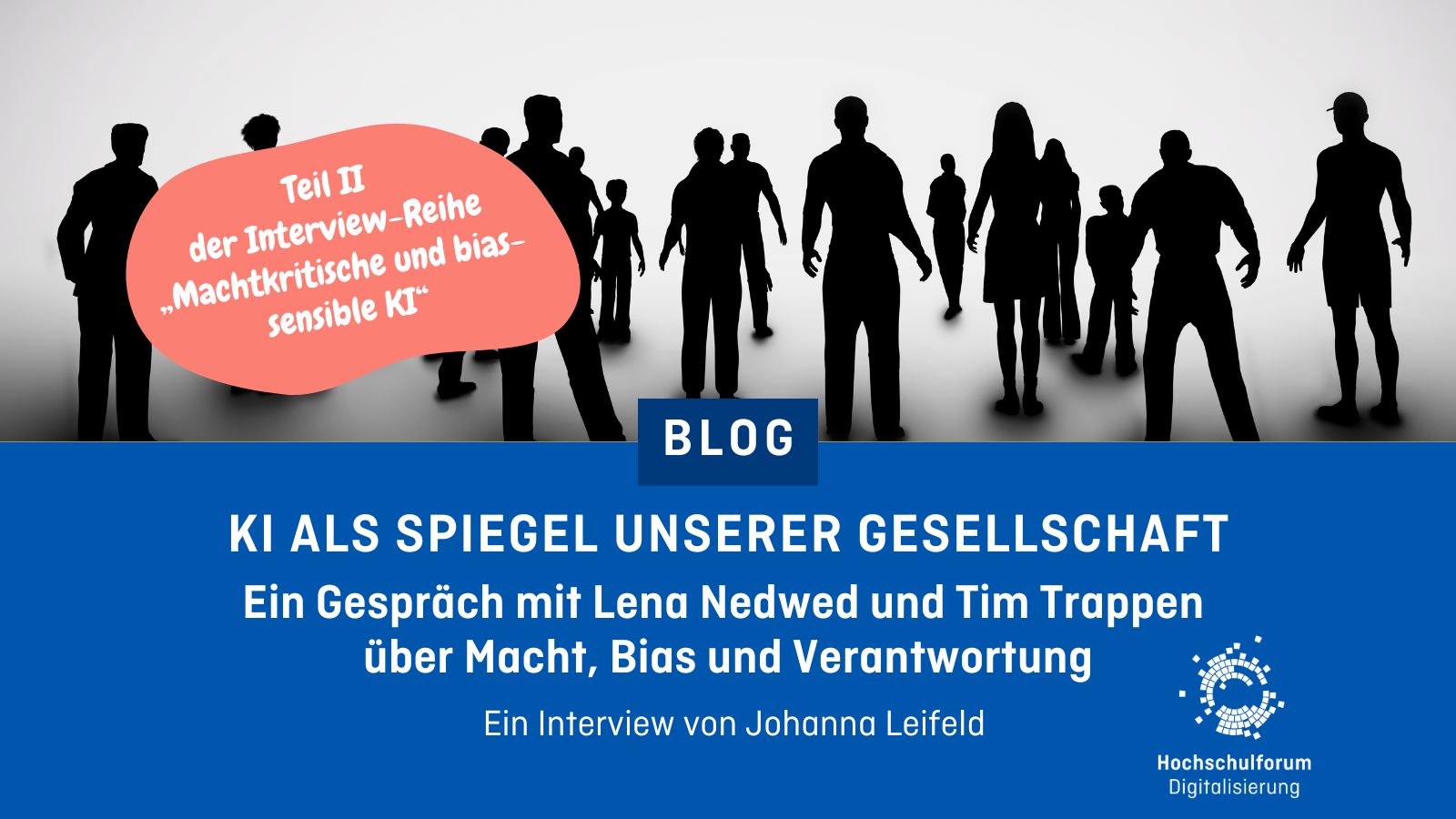“Extremely helpful input and exchange” Event report on the AI networking event on 22.08.2024
“Extremely helpful input and exchange” Event report on the AI networking event on 22.08.2024
04.09.24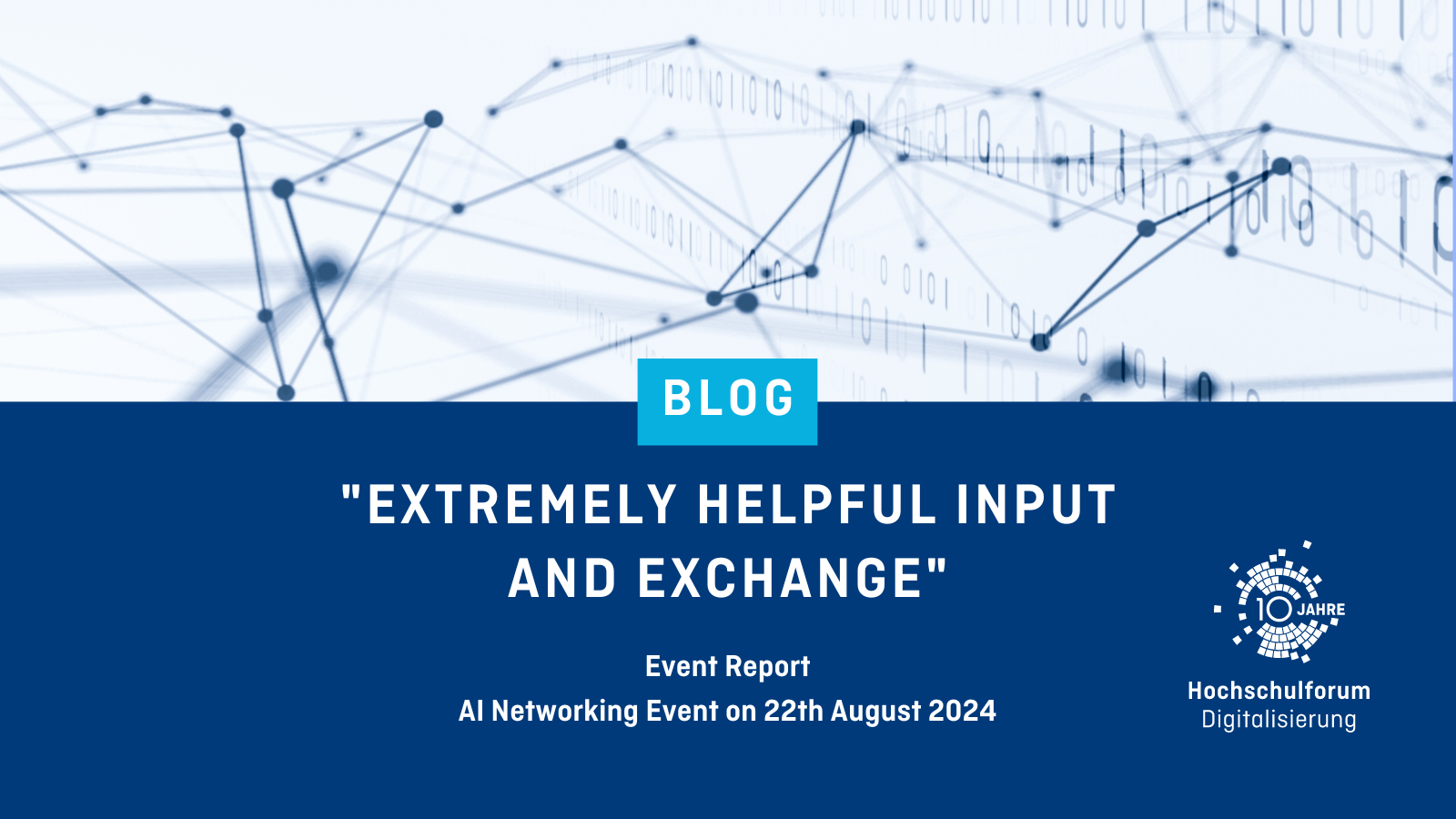
At the HFD’s AI networking event on August 22, 2024, around 170 participants from universities across Germany, Austria and Switzerland exchanged views on generative AI in higher education.
A look back and a look ahead.
The event was based on a nationwide survey conducted by the HFD in May and June on the use of artificial intelligence at universities in the areas of studying and teaching.
The members of the leading AI working groups at the universities were asked for their assessment and invited to the HFD networking event to exchange views.
An unsurprising result: the topics and challenges are diverse and the expertise and experience vary greatly.
AI networking event: the format
We came up with a special format: members of AI working groups or similar groups from different universities were to come together online.
They were asked in advance to submit specific questions and projects that would serve as the basis for discussion during the small group work phase at the heart of the event.
This was challenging, as it required many volunteers to get involved.
We were supported in our preparations by a number of partners, including the AI Campus, KI:edu.nrw, the Baden-Württemberg University Network for the Digitization of Teaching (HND-BW), the Center for Teaching and Learning Services at RWTH Aachen University, e-teaching and the FernUniversität in Hagen.
Thanks to this broad support network, it was possible to recruit numerous people as small group moderators with specific questions and projects.
Before we sent the small groups into an exchange, it was important for us to broaden their horizons about the challenges of AI and their interrelationships in the form of an input phase.
To this end, we first presented the results of the survey mentioned above.
This was followed by keynote speeches that opened up different perspectives on the topic of AI:
- Stephan Jolie, Vice President of Mainz University, shed light on the university management perspective
- Matthias Bandtel, Managing Director of HND-BW, reported on initiatives and findings from Baden-Württemberg
- Caroline Berger-Konen from the FernUniversität Hagen shared key insights from the AI symposium on AI infrastructures and approaches
- Inga Gostmann from the DigitalChangeMaker initiative of Hochschulforum Digitalisierung contributed the student perspective
The 170 or so participants then began their discussions in the aforementioned small groups.
In two 50-minute rounds, the groups worked together on solutions and possible transfer approaches based on specific questions and projects.
Networking with each other was part of the small group work.
The sessions followed a structured sequence, which was moderated by dedicated topic mentors and supported by a miro board provided to secure the results.
The discussions focused on the following topics, to which questions and projects could be assigned:
- Development of participatory exchange formats
- Implementation of AI systems
- Offers for students
- AI in the audit context
- Data protection and copyright
- Support and further training opportunities for teachers
- AI and strategy processes
- Development of AI guidelines and handouts
The results
As became increasingly clear over the course of the event, the AI working groups benefit in particular from networking across universities and establishing contact with state and nationwide initiatives and alliances that address the various AI topics.
Our event revealed a great willingness on the part of the participants to openly share their experiences.
The same applies to the willingness to collectively participate in infrastructure and software solutions, which is particularly important at the level of technical requirements for the provision of AI systems and their implementation.
The need for guidance, training and support for teachers and students is also still huge, which also makes a collective interlocking of the AI resources created seem sensible here.
The participants mentioned a particularly large number of problems and uncertainties in the areas of “AI in the examination context” and “data protection and copyright”.
This is where the transformation potential of AI seems to rub most against the existing framework conditions, structures and regulations.
Many participants considered it a necessary step to start with the question of what specific role AI systems can and should play at their own university. The networking event’s approach of developing strategic considerations based on specific cases and challenges at universities proved particularly successful:
Would you do it again?
If you ask the participants: Yes.
92% stated in the evaluation (n=50) that they would take part again.
Accordingly, we are working on plans for a continuation.
However, the feedback also revealed potential for improvement:
- Many felt that the work phases were too short for the questions.
- Some requested even more intensive preparation for the demanding role of small group moderation.
- Some also wanted longer and more intensive input.
The topics of the networking event are far from over – neither in theory nor at the action level.
We at HFD would like to continue working on this and are working on further formats. Stay tuned!
PS.
If you are interested in an overview of the AI resources (e.g. projects, studies, literature and further education offers) compiled in the course of the event, please contact our Notice board for a visit.
Feel free to add further resources there.
A newly established HFD LinkedIn group is available for further exchange.


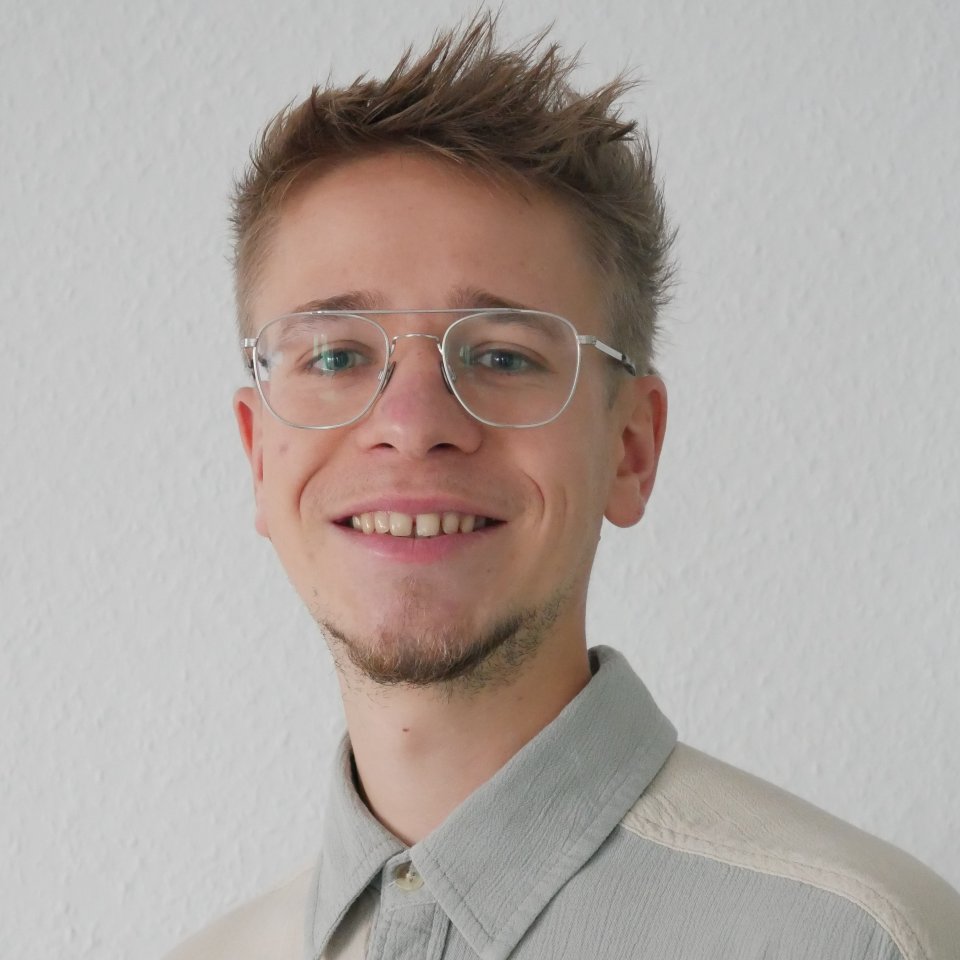

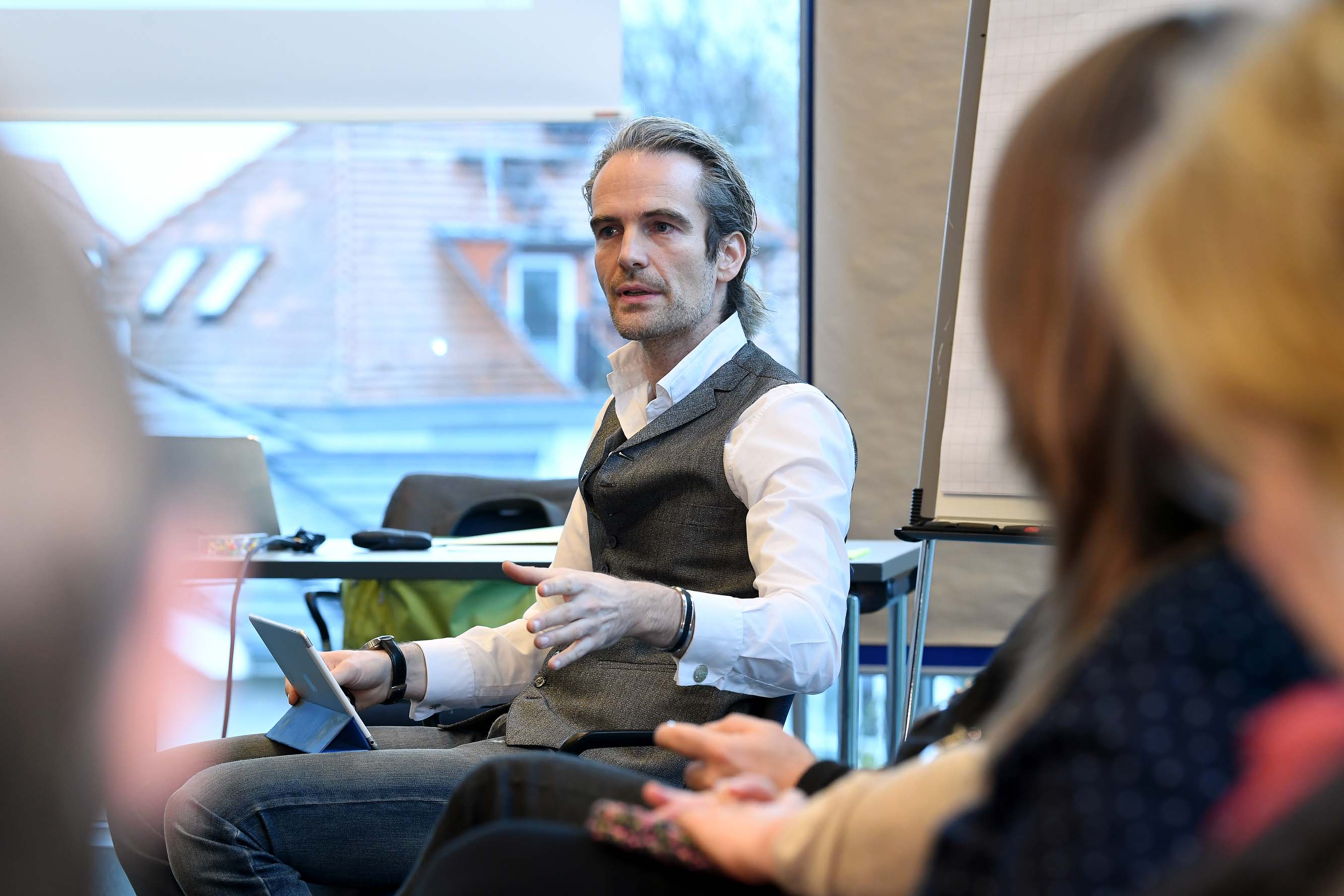
 Vera Lenz-Kesekamp
Vera Lenz-Kesekamp 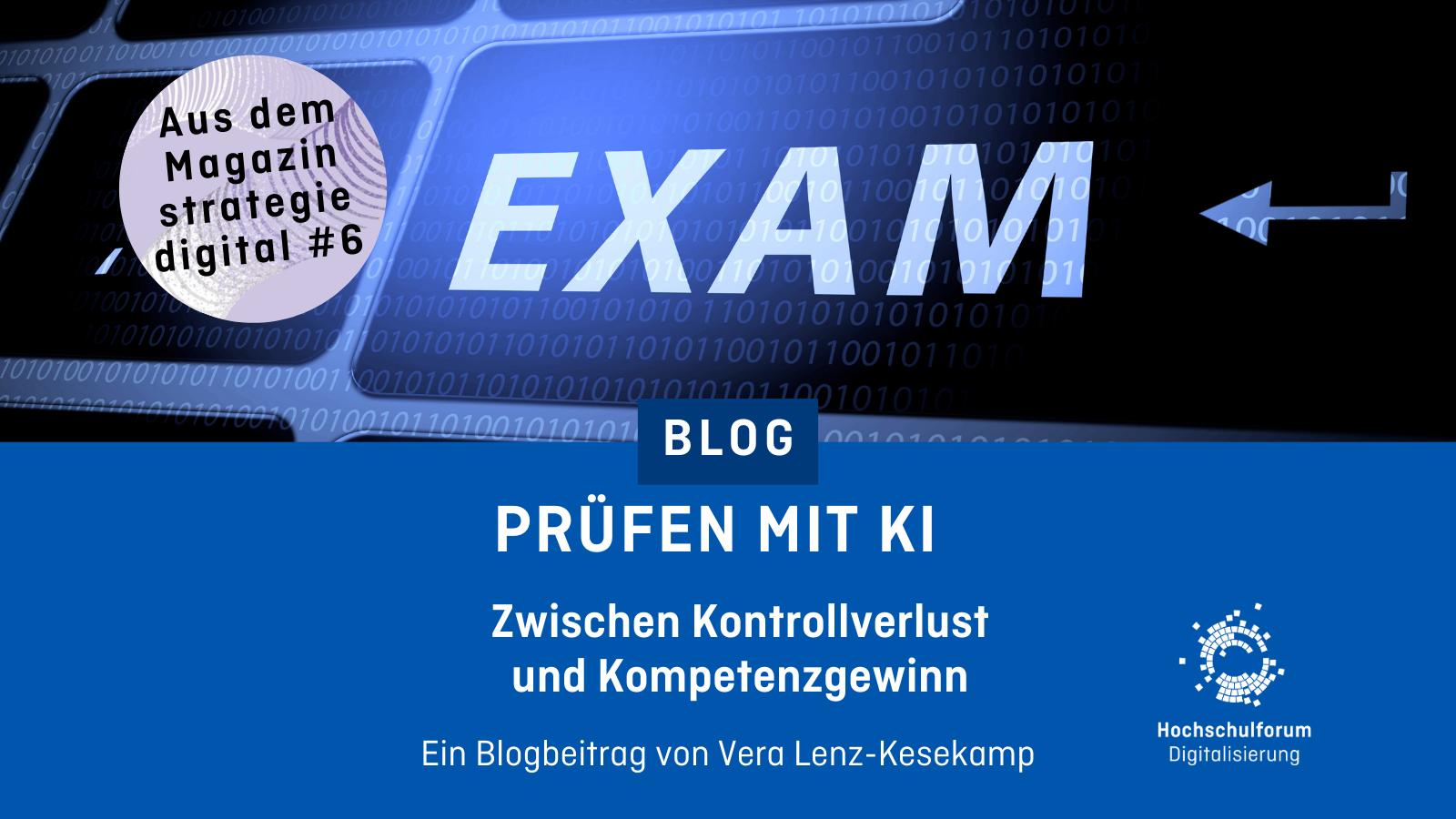
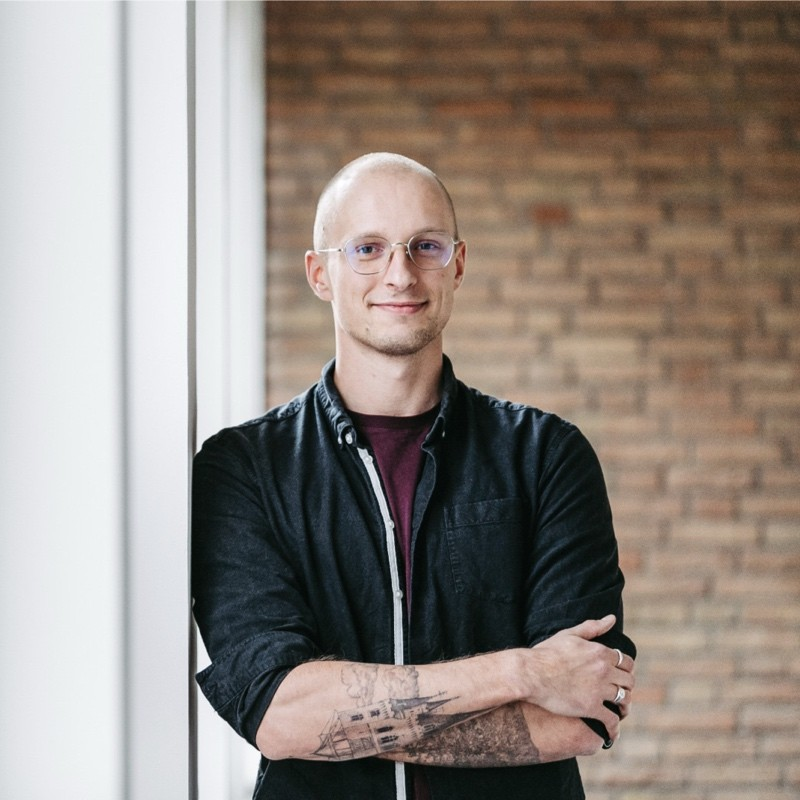 Felix Averbeck
Felix Averbeck 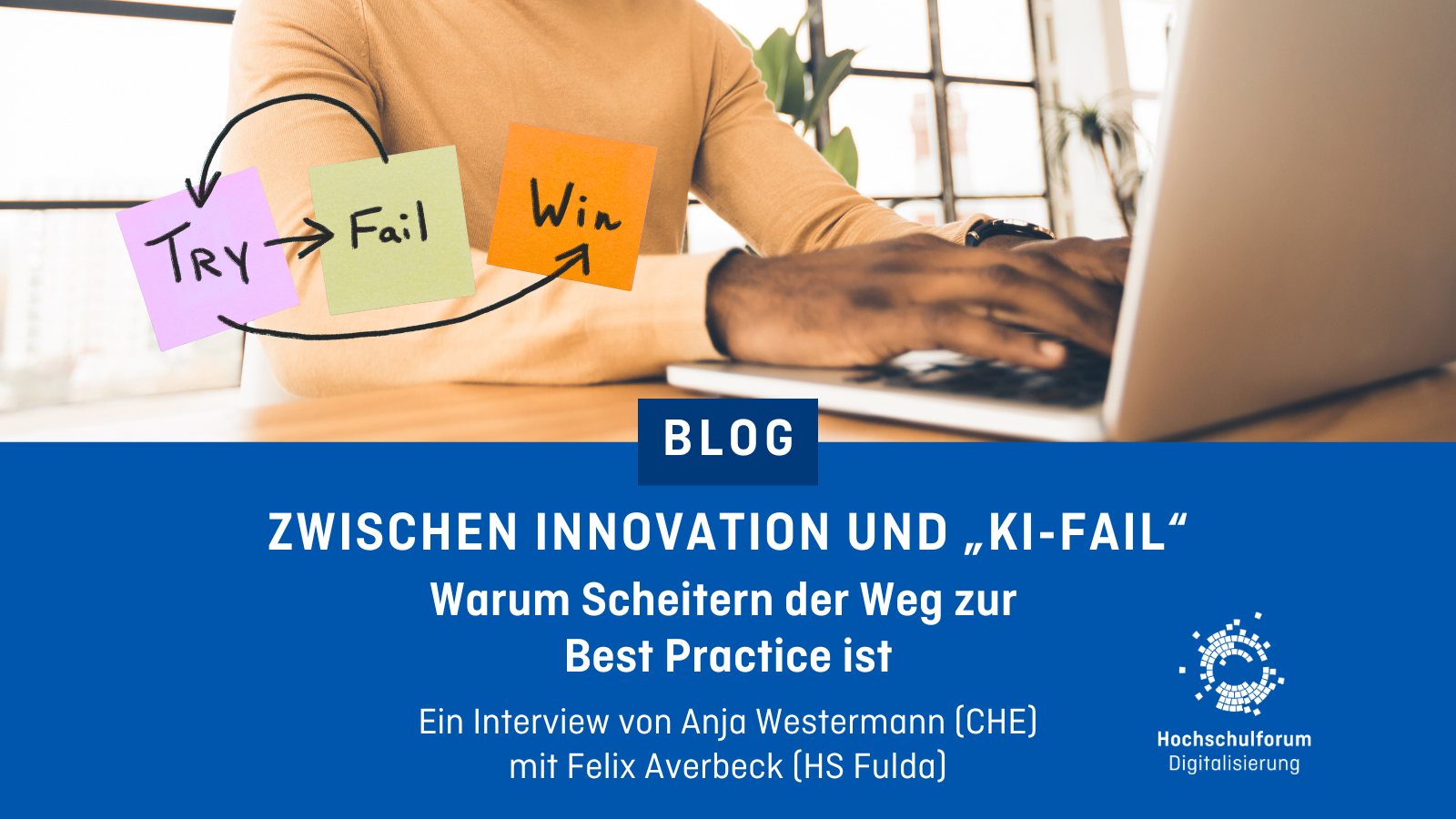
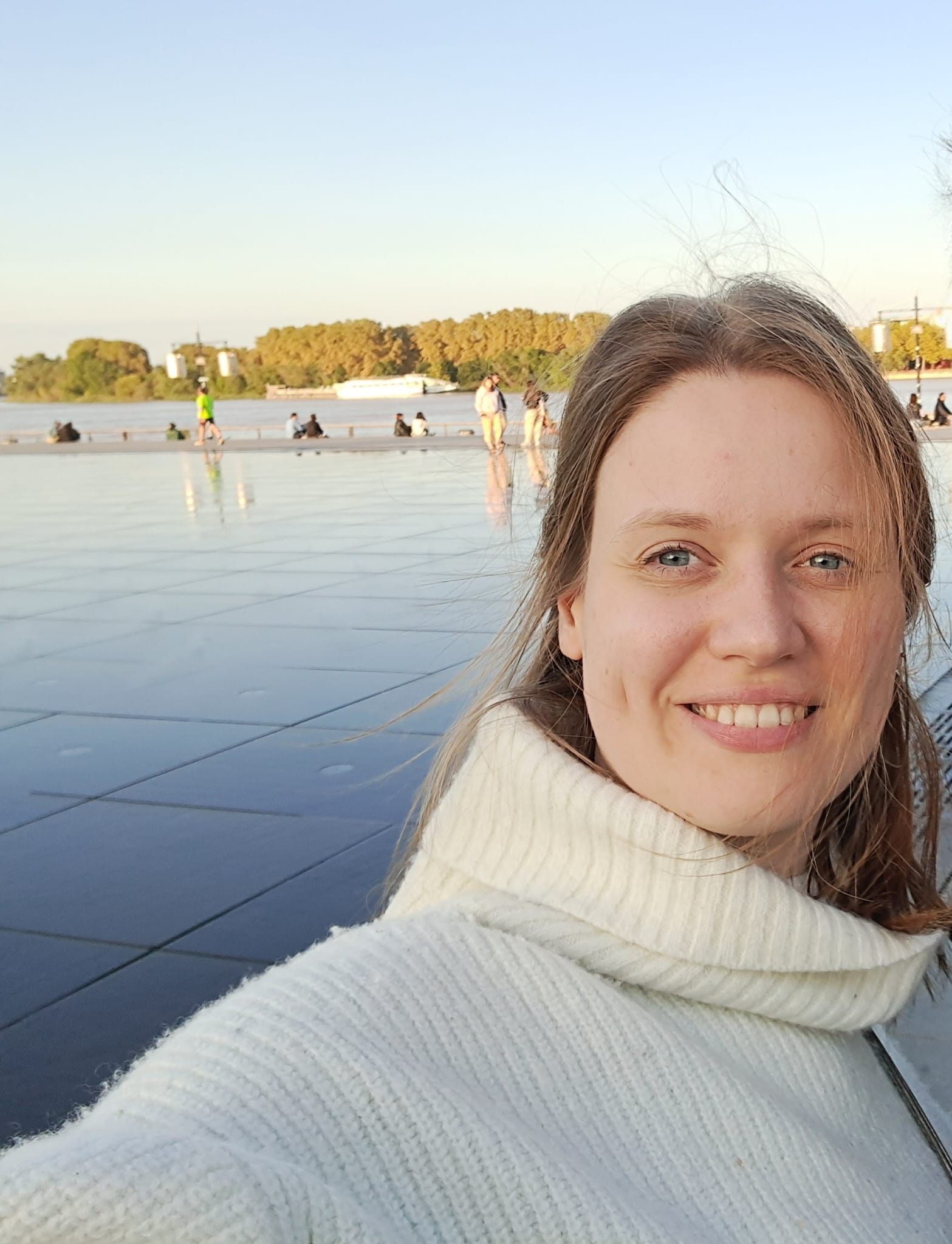 Lena Nedwed
Lena Nedwed 